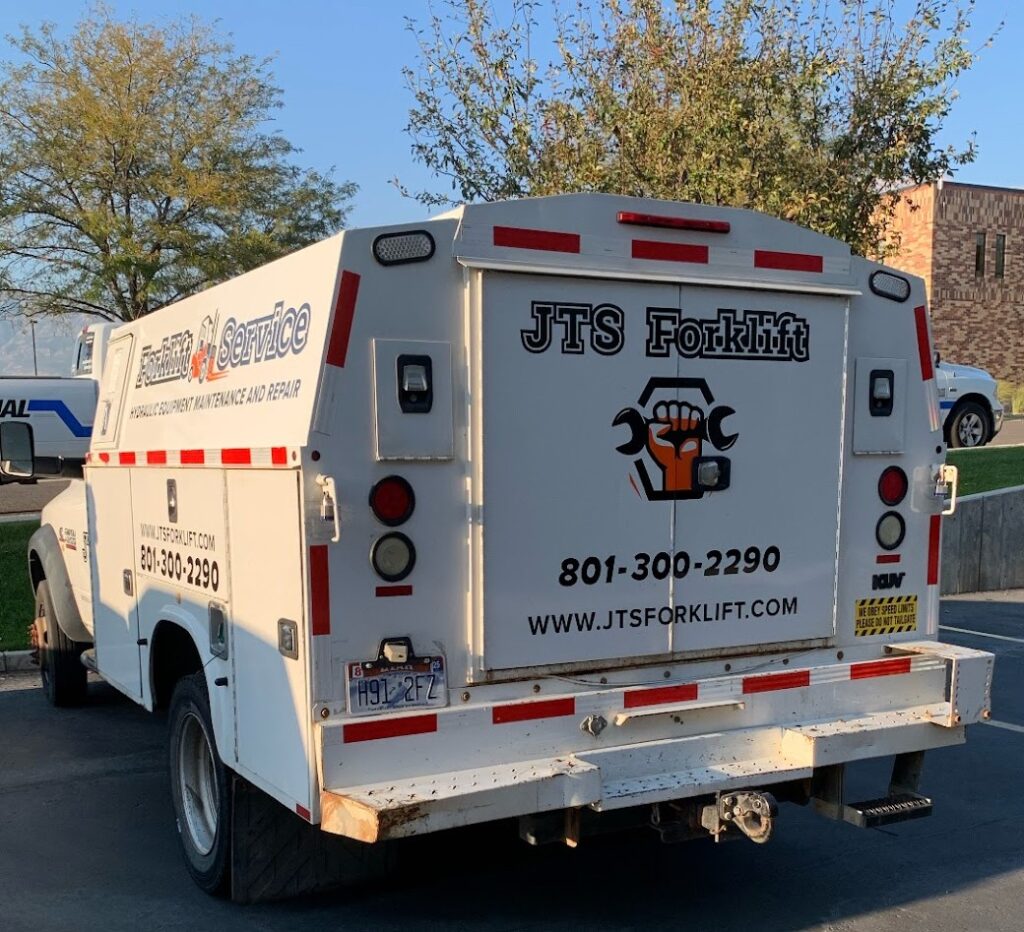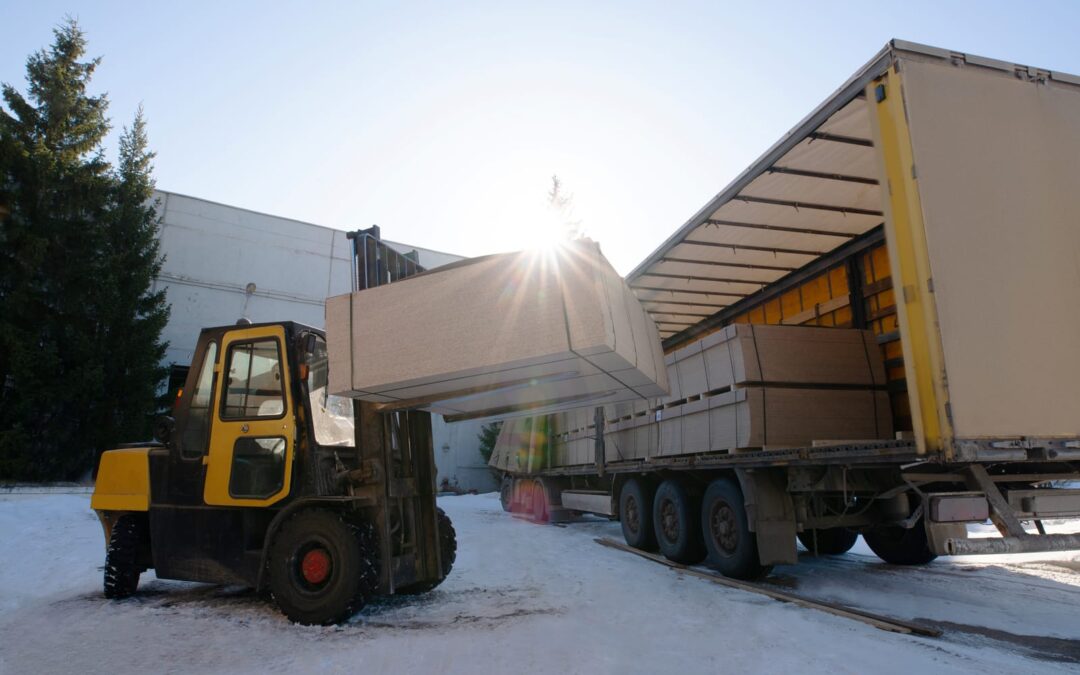Winter brings unique challenges for material handling equipment, particularly electric forklifts operating in Utah’s harsh conditions. Cold temperatures can significantly impact battery performance, reduce operational efficiency, and lead to costly breakdowns if proper maintenance protocols aren’t followed.
Electric forklift batteries are especially vulnerable during the winter months. Battery capacity can drop by 20-30% in freezing temperatures, while charging times increase substantially. These performance issues don’t just affect productivity—they can compromise workplace safety and lead to unexpected downtime that disrupts your entire operation.
Understanding how to protect your electric fleet during winter is crucial for maintaining operational efficiency. With proper preparation and maintenance strategies, you can ensure your equipment performs reliably throughout the coldest months while extending its overall lifespan.
The Challenges of Cold Weather on Electric Forklifts
Cold weather affects electric forklifts differently than their internal combustion counterparts. The primary concern centers around battery chemistry and electrical systems that struggle in low temperatures.
How Cold Affects Battery Performance
Electric forklift batteries face significant challenges when temperatures drop below 32°F. Lead-acid batteries, commonly used in electric forklifts, experience reduced chemical activity in cold conditions. This reduction directly impacts their ability to deliver consistent power output.
Additionally, cold temperatures increase battery internal resistance, meaning the battery must work harder to provide the same amount of power. This extra strain not only reduces runtime but also generates more heat during operation, creating thermal stress on battery components.
Lithium-ion batteries, while more resilient than lead-acid options, still experience performance degradation in extreme cold. Their charging capabilities become limited below certain temperatures, potentially requiring special heating systems to maintain optimal charging conditions.
Impact on Overall Forklift Operation and Efficiency
Beyond battery concerns, cold weather affects multiple systems within electric forklifts. Hydraulic fluid becomes thicker in cold temperatures, causing slower lift speeds and reduced responsiveness. This viscosity change can strain hydraulic pumps and motors, potentially leading to premature wear.
Electrical connections and wiring also become more brittle in cold conditions. Vibrations and normal operation stress can cause connections to loosen or fail, resulting in intermittent electrical issues that are difficult to diagnose.
Tire pressure drops significantly in cold weather, affecting stability and traction. Low tire pressure increases rolling resistance, forcing the battery to work harder to maintain normal speeds and maneuverability.
Essential Winter Maintenance Tips for Electric Forklifts
Implementing a comprehensive winter maintenance strategy protects your investment while ensuring reliable operation throughout the cold season.
Battery Care: Charging, Insulation, and Maintenance
Battery maintenance becomes critical during the winter months. First, ensure batteries are fully charged before cold weather sets in. A fully charged battery is less likely to freeze and performs better in low temperatures than a partially discharged one.
Consider installing battery insulation or heating systems for extreme cold conditions. These systems maintain optimal battery temperature, preserving performance and extending battery life. However, ensure any heating system is properly installed and doesn’t interfere with ventilation requirements.
Monitor charging cycles more closely during winter. Cold batteries take longer to charge and may not reach full capacity. Allow extra time for charging cycles and avoid interrupting the process, as incomplete charging reduces battery performance and lifespan.
Check electrolyte levels more frequently in lead-acid batteries. Cold weather can affect fluid levels, and low electrolyte levels can damage battery plates permanently. Keep terminals clean and apply protective coating to prevent corrosion from road salt and moisture.
Tire and Fluid Checks
Inspect tire pressure weekly during the winter months. Cold air contracts, reducing tire pressure by approximately 1-2 PSI for every 10-degree temperature drop. Maintain manufacturer-recommended pressure levels to ensure proper traction and reduce battery strain.
Check hydraulic fluid levels and condition regularly. Consider switching to winter-grade hydraulic fluid if operating in extremely cold conditions. This fluid maintains proper viscosity at low temperatures, ensuring smooth operation of lift cylinders and tilt functions.
Examine all fluid connections for leaks. Cold weather can cause seals and gaskets to contract, creating leak points. Address any leaks immediately to prevent system damage and maintain optimal performance.
Inspection of Electrical Components
Cold weather makes electrical systems more vulnerable to failure. Inspect all electrical connections for corrosion, looseness, or damage. Tighten connections as needed and apply dielectric grease to prevent corrosion.
Check wiring harnesses for cracks or brittleness. Cold temperatures can make wire insulation brittle, leading to shorts or open circuits. Replace any damaged wiring before problems occur.
Test all safety systems, including lights, alarms, and emergency stops. These systems are crucial for safe operation and must function properly regardless of weather conditions.
Why Regular Maintenance is Crucial
Winter forklift maintenance isn’t just about preventing problems—it’s about maintaining productivity, safety, and equipment value throughout the cold season.
Preventing Breakdowns and Costly Repairs
Regular maintenance identifies potential issues before they become major problems. A small electrical connection issue caught during routine inspection costs far less than a complete electrical system failure during peak operational periods.
Cold weather accelerates wear on many components. Preventive maintenance helps identify parts that need replacement before they fail, avoiding unexpected downtime that can disrupt entire operations.
Proper maintenance also ensures warranty coverage remains valid. Many manufacturers require documented maintenance records to honor warranty claims, making regular service essential for protecting your investment.
Ensuring Safety and Compliance with Standards
Winter conditions increase workplace safety risks. Properly maintained equipment operates more predictably, reducing the likelihood of accidents caused by equipment failure.
Regular inspections ensure your fleet meets OSHA requirements and industry safety standards. Documentation from professional maintenance services provides evidence of compliance during safety audits.
Well-maintained equipment also protects operators from hazards associated with equipment failure, such as hydraulic system failures or electrical malfunctions that could cause injuries.
Extending the Lifespan of Your Equipment
Consistent maintenance significantly extends equipment life. Components that receive regular attention last longer and perform better throughout their service life.
Winter maintenance prevents accelerated wear caused by cold-weather stress. This protection maintains equipment value and delays the need for costly replacements.
Proper care also maintains manufacturer warranties and can improve resale value when it’s time to upgrade your fleet.

JTS Forklift Service: Your Partner in Winter Forklift Maintenance
JTS Forklift Service understands the unique challenges cold-weather businesses face during the winter months. With over 30 years of combined expertise in material handling equipment, they provide comprehensive maintenance solutions designed to keep your electric fleet operating efficiently.
Overview of JTS Forklift Service Offerings in Utah
JTS Forklift Service offers complete maintenance and repair services throughout Utah, including Salt Lake City, Provo, Ogden, and surrounding areas. Their mobile service capabilities bring expert technicians directly to your facility, minimizing downtime and disruption to your operations.
Services include routine maintenance, emergency repairs, parts replacement, and comprehensive fleet inspections. They maintain an extensive parts inventory to ensure quick turnaround on repairs and service calls.
Their 24/7 availability means help is available whenever you need it, regardless of weather conditions or time of day. This round-the-clock commitment ensures your operations can continue even when unexpected problems arise.
Specialization in Electric Forklift Maintenance and Repairs
Electric forklifts require specialized knowledge and equipment for proper maintenance. JTS Forklift Service has developed expertise specifically in electric forklift systems, including battery maintenance, electric motor repairs, and charging system inspections.
Their technicians understand the unique requirements of electric forklift batteries and can provide expert guidance on winter battery care. This specialization ensures your equipment receives the most appropriate care for its specific design and operating requirements.
The company services all makes and models of electric forklifts, providing consistent, professional service regardless of your equipment brand or age.
24/7 Availability and Rapid Response Times
Winter weather doesn’t follow business hours, and neither do equipment problems. JTS Forklift Service provides 24/7 emergency response to ensure your operations can continue even when unexpected issues arise.
Their rapid response capability minimizes downtime costs and keeps your business moving. Mobile service units are equipped with common parts and diagnostic equipment, enabling many repairs to be completed on-site.
Same-day service quotes ensure you can make informed decisions quickly, whether dealing with routine maintenance or emergency repairs.
Keep Your Fleet Moving This Winter
Winter forklift maintenance requires attention to detail and specialized knowledge to ensure reliable operation. Electric forklifts face unique challenges during the winter months, from reduced battery performance to increased component wear.
Implementing proper maintenance strategies protects your equipment investment while ensuring safe, reliable operation throughout Utah’s winter season. Regular battery care, fluid checks, and electrical inspections prevent costly breakdowns and extend equipment life.
Contact JTS Forklift Service today for expert winter maintenance services. Their specialized knowledge of electric forklifts and 24/7 availability ensure your fleet stays operational when you need it most. Don’t let winter weather compromise your productivity—partner with the professionals who understand Utah’s unique operating conditions.
GET IN TOUCH WITH US TODAY
